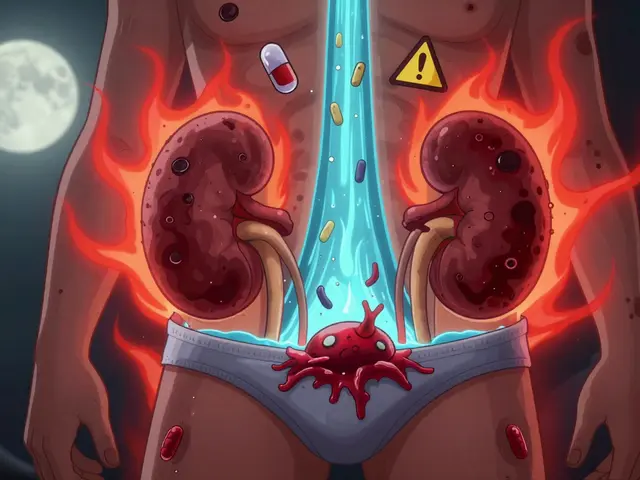Bacterial eye infection — how it affects your mind and what to do
Dealing with a bacterial eye infection can feel small at first — a gritty eye, discharge, redness. But for many people it quickly becomes more than physical irritation. Loss of clear vision, worry about long-term damage, and the social awkwardness of visible symptoms often trigger anxiety, low mood, or sleep trouble. This month we focused on how those mental reactions show up and, more importantly, what you can do right away.
How these infections hit your mental health
First, the threat to vision is real and it scares people. Even temporary blurriness or light sensitivity makes everyday tasks harder and raises stress. Second, symptoms are visible: crusting, red eye, or patches can make you self-conscious at work or in social settings. Third, treatment routines — frequent drops, avoiding contact lenses, repeat doctor visits — interrupt life and can lead to frustration or hopelessness if recovery is slow.
People also describe practical worries: will I miss days at work, will I need more medicine, could this come back? Those concerns pile up and can affect sleep and concentration. If someone already has anxiety or depression, a physical illness like an eye infection often amplifies those feelings.
Simple steps to protect your mind while treating your eye
Start with clear actions. Book and attend follow-up visits so you know how treatment is going. Write down the schedule for eye drops and set phone reminders — this reduces uncertainty and helps you stick to the plan. If you wear contacts, stop until your doctor clears you; keeping them in risks worse infection and longer recovery.
Talk about it. Tell a trusted coworker or friend that you're dealing with a temporary eye problem so you don’t have to explain if you look different or need time off. Saying it out loud reduces shame and stops small worries from growing into bigger anxiety.
Handle stress directly. Short breathing exercises, a 10-minute walk, or a brief guided relaxation before bed often improve sleep and reduce the racing thoughts that come with health worries. If intrusive worries persist, a brief phone call or telehealth visit with a mental health clinician can be very practical — you don’t need months of therapy to learn coping tools.
Keep treatment practical: use warm compresses for comfort if your doctor recommends them, avoid rubbing the eye, and use a single clean towel only for your face. These small habits speed recovery and give you a sense of control.
Watch for warning signs that need urgent care: sudden loss of vision, intense pain, spreading redness, or fever. Those symptoms can be signs of a severe infection and treating them fast prevents long-term problems — and reduces the anxiety of not knowing what’s happening.
You don’t have to accept anxiety as part of the recovery. Clear treatment steps, simple stress tools, and honest talk with your doctor or friends make a big difference. If worries or low mood continue beyond the infection, reach out to a health professional — your mental health matters as much as your sight.
Understanding the Psychological Impact of Bacterial Eye Infections
Bacterial eye infections can affect not only the physical health of an individual but also their mental well-being. This article explores these types of infections, their psychological impacts, and offers tips for managing the associated mental health challenges. By understanding these effects, individuals can better navigate their health journey.






